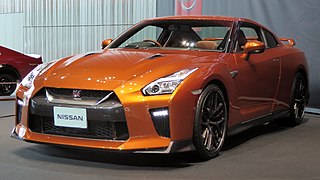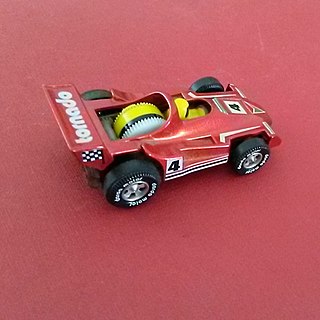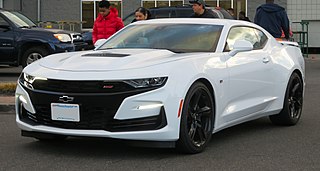
Matchbox is a popular toy brand which was introduced by Lesney Products in 1953, and is now owned by Mattel, Inc, which purchased the brand in 1997. The brand was given its name because the original die-cast "Matchbox" toys were sold in boxes similar to those in which matches were sold. The brand grew to encompass a broad range of toys, including larger scale die-cast models, plastic model kits, slot car racing, and action figures.
Hot Wheels is an American brand of scale model cars and slot car racing kits introduced by American toymaker Mattel in 1968. It was the primary competitor of Matchbox until 1997, when Mattel bought Tyco Toys, former owner of Matchbox.

Scalextric is a brand of slot car racing sets which first appeared in the late 1950s. The Scalextric were first invented by engineer B. Fred Francis, when he added an electric engine to the Scalex tin cars that were produced by Minimodels Ltd, his own company The first "Scalextric" were first made in Havant, Hampshire, in 1956.
Dirt track racing is a form of motorsport held on clay or dirt surfaced oval race tracks often used for thoroughbred horse racing. Dirt track racing started in the United States before World War I and became widespread during the 1920s and 1930s using both automobiles and motorcycles. Two different types of race cars dominate — open wheel racers in the Northeast and West and stock cars in the Midwest and South. While open wheel race cars are purpose-built racing vehicles, stock cars can be either purpose-built race cars or street vehicles that have been modified to varying degrees.. There are hundreds of local and regional racetracks throughout the nation. The sport is also popular in Australia, New Zealand, Canada, South Africa and the United Kingdom.

A die-cast toy is a toy or a collectible model produced by using the die casting method of putting molten lead, zinc alloy or plastic in a mold to produce a particular shape. Such toys are made of metal, with plastic, rubber, glass, or other machined metal parts. Wholly plastic toys are made by a similar process of injection moulding, but the two methods are distinct because of the properties of the materials.

Maisto is a brand of scale model vehicles introduced and owned by May Cheong Group, a Chinese company founded in 1967 in Hong Kong by brothers P.Y. Ngan and Y.C Ngan. The company has also subsidiaries in the United States, France, and China. MCG also owns other model car brands such as Italian former company Bburago and Polistil.
Street racing is typically an unsanctioned and illegal form of auto racing that occurs on a public road. Racing in the streets is considered an ancient hazard, as horse racing occurred on streets for centuries, and street racing in automobiles is likely as old as the automobile itself. It became especially prevalent during the heyday of hot rodding (1960s), muscle cars (1970s) and Japanese imports (1990s). Since then, it continues to be both popular and hazardous, with deaths of bystanders, passengers, and drivers occurring every year. In the United States, modern street racing traces its roots back to Woodward Avenue, Michigan, in the 1960s when the three main Detroit-based American car companies were producing high-powered performance cars. Since a private racing venue was not always available, street races would be held illegally on public roads.

Tomica is a line of die-cast toy vehicles produced since 1970 by Takara Tomy Co. of Japan. Ostensibly, Tomica diecast were an outgrowth of Tomica World, an autonomous toy line of motorized train accessories that Tomy had created based on Plarail and produced since 1959. Similar in concept, Tomica can be thought of as the Japanese Matchbox - but focuses mainly on Japanese brands.
Husky was a brand name for a line of business die-cast toy scale model vehicles manufactured by Mettoy Playcraft Ltd. of Swansea, Wales, which also made the larger Corgi Toys. Husky Models was re-branded "Corgi Junior" in 1970, and a further range called "Corgi Rockets" was developed to race on track sets.

Playart was a toy company owned by Hong Kong industrialist Duncan Tong (唐鼎康) that specialized in die-cast cars, similar in size and style to Hot Wheels, Matchbox or Tomica. Cars were well done, but were often diecast seconds from other companies like Yatming or Tomica. Cars were made from 1965 to 1983 at the factory in San Po Kong, Kowloon, Hong Kong. Plastic cars and trucks of 1:43, and 1:24 scale were also made, while trains and other theme toys also appeared.
Total Control Racing (TCR) was a toy brand from Ideal which debuted in the late 1970s, similar to slot car sets, with approximately HO scale cars that operated on a slotless track.

Johnny Lightning is a brand of diecast model cars launched in 1969 by Topper Corporation, similar to the hugely successful Mattel's Hot Wheels cars. Their claim to fame at that time was that they were extremely fast compared to other brands of die-cast cars. Their most important technology was to mold in a small hook under the front axle so that they could be propelled by a lever-driven catapult, far faster than could be obtained by either gravity, or battery powered "supercharger" devices.
Powertrack is the brand name for the Matchbox's slot car sets. Introduced in the late 1970s by Lesney Products Ltd, Powertrack models differed from other slot car sets because the cars could be seen in the dark as the cars had headlights. Matchbox's H0/00 cars were smaller than Scalextric 1:32-scale cars. In the United States, the series were renamed "Speedtrack".

The fifth-generation Chevrolet Camaro is a pony car that was manufactured by American automobile manufacturer Chevrolet from 2010 to 2015 model years. It is the fifth distinct generation of the muscle/pony car to be produced since its original introduction in 1967. Production of the fifth generation model began on March 16, 2009 after several years on hiatus since the previous generation's production ended in 2002 and went on sale to the public in April 2009 for the 2010 model year.

The Nissan GT-R is a high-performance sports car and grand tourer produced by Nissan that was unveiled in 2007. It is the successor to the Skyline GT-R, a high performance variant of the Nissan Skyline. Although this car was the sixth-generation model to bear the GT-R name, the model is no longer part of the Nissan Skyline model lineup since that name is now reserved for Nissan's luxury-sport vehicles. The GT-R shares the Nissan FM platform with the separate Nissan Skyline luxury car and the Nissan Z sports car.

The Aurora Plastics Corporation was a U.S. toy and hobby manufacturing company. It is known primarily for its production of plastic scale models of cars, airplanes, and TV and movie action figures in the 1960s. Its principal competition in modeling were various other plastic modeling firms like Revell and Monogram.
The following is a glossary of terminology used in motorsport, along with explanations of their meanings.

A pullback motor is a simple clockwork motor used in toy cars. A patent for them was granted to Bertrand 'Fred' Francis in 1952 as a keyless clockwork motor.
Knight Rider is an American entertainment franchise created by Glen A. Larson. The core of Knight Rider is its three television series: the original Knight Rider (1982–1986) and sequel series Team Knight Rider (1997–1998) and Knight Rider (2008–2009). The franchise also includes three television films, a short-lived spinoff series, computer and video games, and novels, as well as KnightCon, a Knight Rider convention. Beginning with the original television series and continuing with the subsequent films and series, the franchise has developed a cult following and spawned many pop culture references.

The sixth-generation Chevrolet Camaro is an American pony car. Produced by automobile manufacturer Chevrolet, it was first introduced to the public on May 16, 2015. Sales started in 2015 for the 2016 model year. The Camaro now utilizes the GM Alpha platform shared with the Cadillac ATS and CTS and features MacPherson struts in front, rather than the former multi-link setup. General Motors claims that 70 percent of architectural components in the new Camaro are unique to the car.












